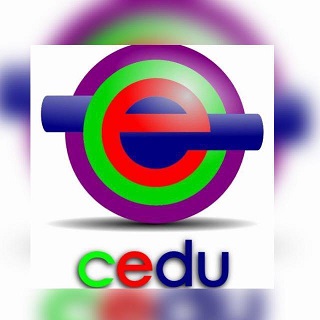NETNOGRAPHY AS A POSSIBILITY OF RESEARCH IN EDUCATION AND TECHNOLOGIES: ASSESSMENT, INTERACTION AND TECHNOLOGICAL TOOLS
Keywords:
Distance education, Virtual learning, Learning Management System, Instruction, Teacher trainingAbstract
Netnography is a research procedure to analyse people inserted in digital communities applied, in this research, at Virtual University of the State of São Paulo, the first Brazilian public institution that offers only distance education. The aim of this paper is to analyse the netnography data in forums of the course Calculus III, of the undergraduate in Physics, based on the following categories: assessment, interaction and technological resources. As results, assessment is often referred to deal with the differences between what is expressed in the lessons from what is assessed. For interaction, it was verified that only 10% of the students participated in the forums, a cornerstone for the online interaction. Finally, it was seen that the technology can facilitate learning, as long as they are added in an intentional way. It can be seen that the netnography can bring relevant elements to analyse contexts of distance education.
Downloads
References
AMERICAN ASSOCIATION OF COLLEGES for Teacher Education [AACTE]. Handbook of Technological Pedagogical Content Knowledge (TPCK) for Educators. Routledge: New York and London, 2008.
BARBOSA, B. P. Educação a distância: a articulação das Tecnologias Digitais de Informação e Comunicação (TDIC) e os estruturantes didáticos. 2015. 223 p. Dissertação (Mestrado em Educação) – Faculdade de Educação, Universidade de São Paulo. São Paulo, 2015. Disponível em: http://www.teses.usp.br/teses/disponiveis/48/48134/tde-25052015-110650/publico/BARBARA_PERES_BARBOSA.pdf. Acesso em: 27 jan. 2020.
BARDIN, L. Análise de Conteúdo. Lisboa: Edições 70, 2007.
BATES, A. W. Teaching in a digital age. Sheffield: Anthony William (Tony) Bates (CC), 2015.
FAHARA, M. F.; CASTRO, A. L. Teaching strategies to promote immediacy in online graduate courses. Open Praxis, v. 7, n. 4, p. 363–376, out.-dez 2015. Disponível em https://openpraxis.org/index.php/OpenPraxis/article/view/228/181. Acesso em: 22 fev. 2021.
HABOWSKI, A. C.; CONTE, E.; JACOBI, D. F. Interlocuções e discursos de legitimação em EaD. Ensaio: Avaliação e Políticas Públicas em Educação, Rio de Janeiro, v. 28, n. 106, p. 178-197, jan-mar. 2020. Disponível em: https://www.scielo.br/pdf/ensaio/v28n106/1809-4465-ensaio-S0104-40362019002701365.pdf. Acesso em: 9 mar. 2021.
HERRING, M. C.; KOEHLER, M. J.; MISHRA, P. (Orgs.). Handbook of Technological Pedagogical Content Knowledge (TPACK) for Educators. 2. ed. Routledge: New York, 2016.
HINE, C. Ethnography for the internet: embedded, embodied and everyday. London and New York: Bloomsbury, 2015.
IMPEDOVO, M. A.; MALIK, S. K. Pakistani Teacher-educator Professional Learning Through an International Blended Course. Open Praxis, v. 11, n. 2, p. 157–166, abr.-jun. 2019. Disponível em: https://openpraxis.org/index.php/OpenPraxis/article/view/928/553. Acesso em: 23 fev. 2021.
IRDALISA; PAIDI; DJUKRI. Implementation of Technology-based Guided Inquiry to Improve TPACK among Prospective Biology Teachers. International Journal of Instruction, v. 13, n. 2, p. 33-44, abr. 2020. Disponível em: https://doi.org/10.29333/iji.2020.1323a. Acesso em: 23 fev. 2021.
KOEHLER, M. J.; MISHRA, P. What happens when teachers design educational technology? The development of technological pedagogical content knowledge. Journal of Educational Computing Research, v. 32, n. 2, p. 131-152, 2005.
KOEHLER, M. J. & MISHRA, P. Introducing TPCK. In: AACTE. Handbook of Technological Pedagogical Content Knowledge (TPCK) for Educators. Routledge: New York and London, 2008. p.3-30.
KOZINETS, R. V. Netnography: Redefined. Los Angeles: Sage, 2015.
KOZINETS, R. V. Netnography: Doing Ethnographic Research Online. Los Angeles: Sage, 2009.
MUZAMMIL, M.; SUTAWIJAYA, A.; HARSASI, M. Investigating Student Satisfaction in Online Learning: The Role of Student Interaction and Engagement in Distance Learning University. Turkish Online Journal of Distance Education, p. 88-96, 2020. Disponível em: https://dergipark.org.tr/en/download/article-file/1206716. Acesso em: 20 fev. 2021.
NIESS, M. L.; GILLOW-WILES, H.; ANGELI, C. (Orgs.). Handbook of Research on TPACK in the Digital Age. Hershey: Information Science Reference, 2019.
OLIVEIRA, É. T. Pedagogical Knowledge of Pre-Service Teachers from a Brazilian Virtual University: Analysis of Data collected by TPACK Survey. American Journal of Humanities and Social Science (AJHSS), v. 9, 2021. Disponível em: http://journalsonline.org/american-journal-of-humanities-and-social-science/pdfs/volume-9/3.pdf. Acesso em: 23 fev. 2021.
OLIVEIRA, É. T. EaD e ambientes virtuais de aprendizagem: dimensões Orientadoras para Seleção de Mídias. 2019. 177 p. Tese (Doutorado em Educação) –Faculdade de Educação, Universidade de São Paulo, São Paulo, 2019. Disponível em: https://teses.usp.br/teses/disponiveis/48/48134/tde-04112019-163653/publico/EDISON_TROMBETA_DE_OLIVEIRA_rev.pdf. Acesso em: 23 fev. 2021.
PASKEVICIUS, M. Conceptualizing Open Educational Practices through the Lens of Constructive Alignment. Open Praxis, v. 9, n. 2, p. 125-140, abr.–jun. 2017. Disponível em: https://openpraxis.org/index.php/OpenPraxis/article/view/519/305. Acesso em: 21 fev. 2021.
SHULMAN, L. Those who understand: knowledge growth in teaching. Educational Research, v. 15, n. 2, p. 4-14, 1986.
SHULMAN, L. Knowledge and teaching: foundations of the new reform. Harvard Educational Review, v. 57, n. 1, p. 1-22, 1987.
Published
How to Cite
Issue
Section
License
Copyright
The submission of originals to Cenas Educacionais (Educational Scenes - CEDU) implies the transfer, by the authors, of the publication rights. The copyright for the manuscripts published in this journal is the author(s), with CEDU rights over the first publication. Authors(s) may only use the same results in other publications by explicitly indicating CEDU as the means of the original publication.
Creative Commons License
Except where otherwise specified, the terms of a Creative Commons Attribution-ShareAlike 4.0 International License license apply to the material published in this journal, which allows unrestricted use, distribution and reproduction in any medium provided the original publication is correctly cited.






 This work is licensed with a License
This work is licensed with a License 